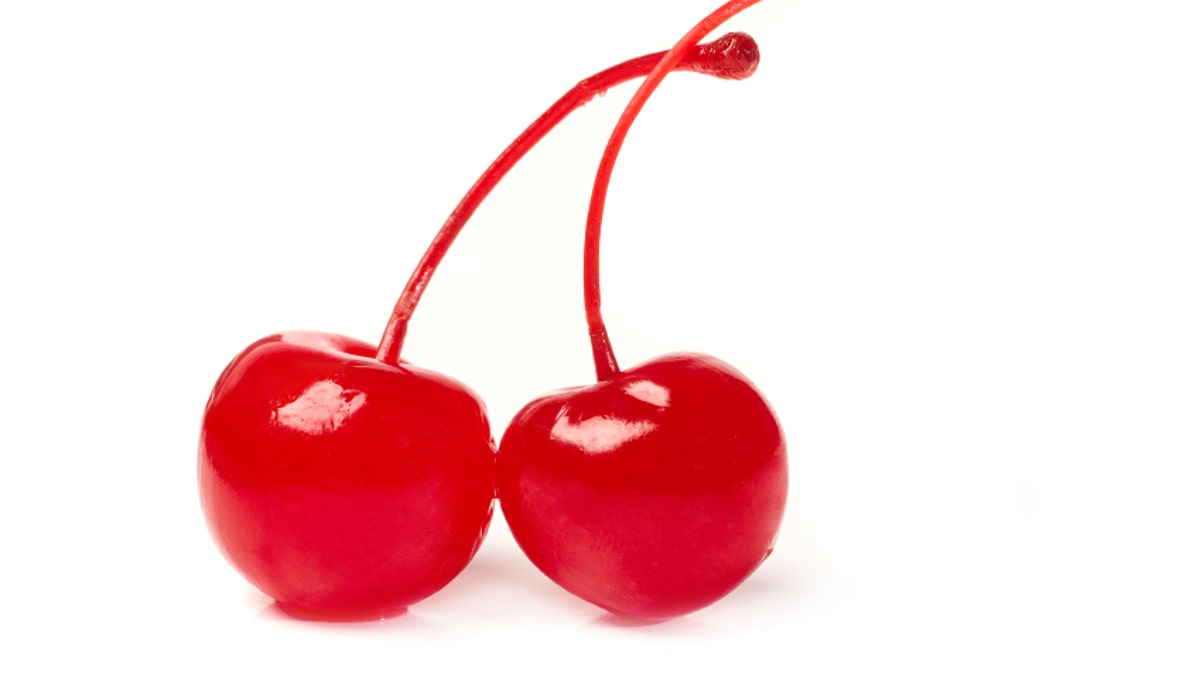
The once maligned maraschino cherries are undergoing an industry makeover. (iStock)
The processed and artificially dyed maraschino cherry hasn't had the best of reputations in the culinary world. No modern day mixologist worth his or her salt would touch them, and you can really find them primarily in sundae shops and fast food joints.
Now there's the suicide of maraschino cherry king Arthur Mondella.
Owner of Dell’s Maraschino Cherries in Brooklyn, N.Y., Mondella ran one of the largest manufacturers of U.S.-produced maraschino cherries, supplying food service giants like Darden, Casears Entertainment, Checkers Steak 'n Shake, Chick-fil-A, and TGI Friday’s.
Mondella shot himself after police uncovered a large stash of marijuana in the basement of his cherry warehouse on Tuesday, reports the NY Daily News.
The company has yet to release a statement on the tragedy but cherry production has reportedly come to a halt at the warehouse which employs just under two dozen workers. In 2007, the company reportedly invested $7 million in upgraded manufacturing equipment and today Dell’s produces over a billion maraschino cherries a year.
Police had been investigating the Brooklyn plant on pollution charges—Mondella had been accused of dumping syrup and other manufacturing byproducts into local water reservoirs. While conducting the raid, a policeman reportedly smelled weed and noticed a flimsy wall held together with magnets.
Investigators later discovered three bags holding about 80 pounds of marijuana, hundreds of thousands of dollars in cash, a Rolls-Royce, a Porsche and Harley-Davidson motorcycle stashed below the plant property.
The shocking revelation comes just a few months after FoxNews.com spoke with Mondella about his company's rebranding and its attempts to meet a growing consumer demand for maraschino cherries with less artificial ingredients and colors.
"We’re looking at natural colors and natural flavors and moving away from fructose," he said at the time.
Those iconic red jewels used to get their color from Red #4—a food dye which was banned in the 1970s due to its linkage to adrenal and urinary bladder damage. Companies then switched to #3, which was eventually linked to thyroid tumors, and was also banned by the FDA.
Today, Red #40 is widely used in within the industry though it has been known to cause allergic reactions in food sensitive individuals or aggravate symptoms in those who suffer from ADHD and hyperactivity.
“I think of maraschino cherries as cherries that have gone wrong. They started off life as a nutritious food, and they ended up as an artificial processed product,” Lisa Lefferts, a scientist of the Center for Science in the Public Interest.
But Mondella defended the use of Red #40 and claims concerns about maraschino cherries were “overhyped.”
“The serving size is a gram,” he told FoxNews.com. “That’s like putting an eye drop in an Olympic-size pool. What’s going to happen? This is basically a topping or a garnish. It’s not as if we’re making a meal of the cherry.”
In 2012, Dell's competitor Gray & Company, the largest U.S. manufacturer of maraschino cherries under the Cherry Man brand, released a line of natural cherries without artificial colors, flavors and preservatives.
Mondella told FoxNews.com that Dell’s version using natural coloring and cane sugar instead of fructose was slated to begin this month, bumping up the price per jar to $2 from $1.29.
But he was hesitant about the move. The change in formula means a change in color and to Mondella that’s the biggest problem which tampering with a traditional formula.
“You’re used to the cherry looking a certain way,” Mondella said.
